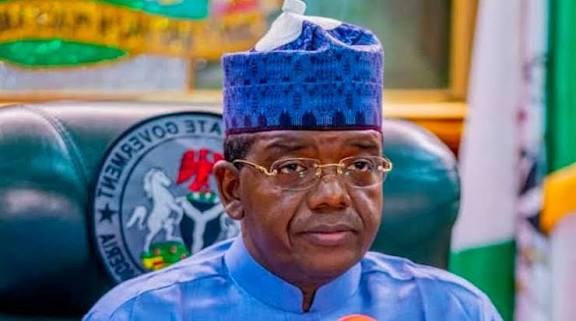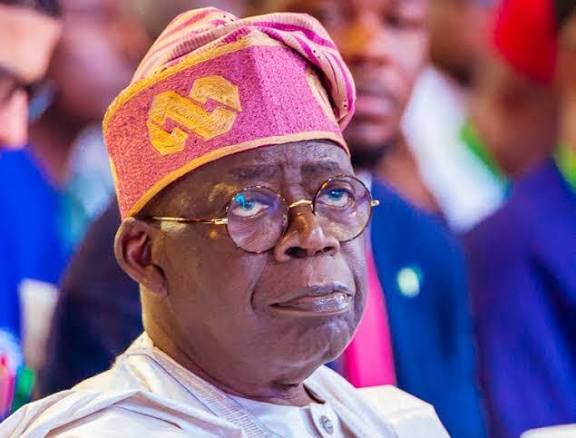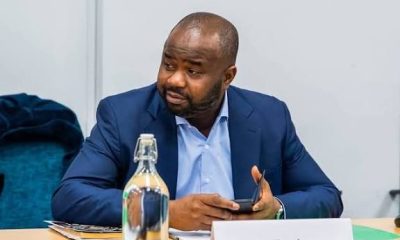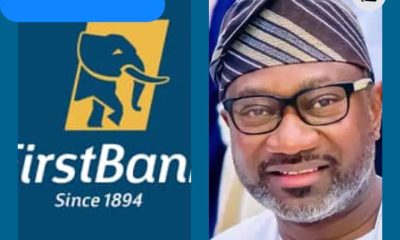News
Oyo State Advances Inclusive Education for Children with Special Needs
By NAN
Rofiah Oyekunle is a 13-year-old special girl with a deep-seated desire to become a teacher in the future.
Her physically challenged status notwithstanding, Rofiah shows no sign of submitting this precious dream to her disability.
Perhaps, being a pupil of Basic Special School, Adeoyo, Ring Road, Ibadan, is just the fuel she needs to keep believing in herself.
Of course, she reckons herself fortunate, knowing that her colleagues, unprivileged to attend special schools, have to stay back at home to watch their dream turn to a nightmare.
With this in mind, Rofiah’s determination to sail through the storms of disability became so endearing, as testified by Mrs Ganiyat Alabi, the headmistress of her school.
“That girl, if she writes or speaks for you, you will like it and adore her.
“Though she’s on a wheelchair with crippled hands, yet she writes, and she is intelligent,” said the proud headmistress.
Alabi, desiring more pupils in Rofiah’s standard, especially in Oyo State, said removing certain learning limitations would further aid the educational inclusiveness of Persons with Disabilities (PWDs).
She mentioned the long-distance pupils with disabilities had to travel to reach school, necessitating the need to reduce school days to two or three days per week.
“There are some pupils with disabilities who need to be stable and be around the school so that educating them will be easier than coming from home.
“So, distance is one of the challenges as well.
“There are some parents who have these children at home, but the stigmatisation and distance of taking them to school are barriers.
“It’s tough, especially when they look at the transportation fare, as they may have to spend between N3,000 and N4,000 daily.
“So, if you see some pupils once or twice per week, you should thank God that they could make it,” the headmistress said.
Alabi also identified the lack of personnel for different categories of disabilities present in special schools as another challenge facing inclusive learning.
The headmistress stated that there should be different classes for different disabilities to aid learning.
“Putting all of them together in the same classroom will jeopardise their learning because they are not all the same in terms of their disabilities and their degrees.
“For instance, those with autism see the world differently, but once we identify them and discover what interests them, we make that our focus.
“And sometimes, because some may be violent and disturb others, we ought not to put all of them together,” Alabi said.
While commending the state government for recently recruiting four special-needs teachers and non-teaching staff to the school, she asked for more intervention.
According to her, the lack of enough classrooms, teaching aids, boarding facilities, and teaching and non-teaching personnel constitutes a huge setback to inclusive learning.
“Sure, despite the new additional hands, we still need more teaching and non-teaching staff, and we need a hostel to be erected in the school compound.
“We have the space for that, and presently, we operate a temporary boarding facility which started in March but can only accommodate 20 out of the about 67 pupils we have,” Alabi said.
The News Agency of Nigeria (NAN) recalls that the nation’s Universal Basic Education (UBE) policy aims to make education accessible to all children, regardless of location or socio-economic background.
One of UBE’s objectives is to reduce the distance between schools and communities, making it easier for children to access education.
Findings, however, revealed that only 15 out of 33 Local Government Areas (LGAs) in the state have schools for pupils with special needs.
Ibadan has nine such schools, comprising both public and private schools.
The situation is heightened by the lack of a policy framework, such as the gender-responsive Education Sector Plan (ESP) in Oyo State.
This is a means to ensure every child, irrespective of gender, accesses good and quality education without any form of barrier.
So, having an ESP in the state has become imperative for the inclusion of children with special needs who are currently out of school.
A parent of a pupil with special needs, Mrs Anna Ogundipe, said she didn’t mind the stress of taking her child to a government-owned special needs school, despite the long distance.
“We live at Yemetu in Ibadan, and because of schooling, my daughter, with a hearing impairment, has to change from the regular school to a special school for the deaf at Eleyele.
“At first, I thought if she was amid those who could speak, it would help her to hear and speak, but when her condition was worsening, I didn’t mind the distance.
“I enrolled her at the Ibadan School for the Deaf, and her condition greatly improved over a short period.
“I believe it will still be better,” Ogundipe said optimistically.
Also, Mrs Oladunni Adepoju, Headmistress, Sabol International School for the Physically Challenged, reiterated the need for massive government support.
According to her, many of the children are locked away in their homes because of the negative attitude of parents and society.
“If we do not care and make provisions for them to show they are part of society, then we’ll have many more of them becoming useless and unable to contribute to the country’s development, despite their disabilities,” she said.
Attesting to the various government interventions at the federal and state levels in the school, Adepoju called for special funds for the education, feeding, and basic healthcare of special needs children.
Meanwhile, Mr Femi Ajulo, Chairman, Joint Association of Persons with Disabilities (JONAPWD), said the Oyo State Government had ensured the inclusion of PWDs in many of its programmes.
“Regrettably, while the government had included people with disabilities in its free education policy, many are still left at home with no access to education because of shame or stigmatisation,” he said.
According to Ajulo, there are about five to six schools for various categories of PWDs in the state.
“This has made it easy for them to get educated.
“The government has also provided a vocational centre for PWDs with a boarding facility, but it cannot accommodate everyone,” he said.
Ajulo believes the state ESP ensures inclusion and support for PWDs.
According to him, the government has promised to pay 10 per cent of the cost of schooling for PWDs attending private schools.
“Those who want their wards educated may not mind putting them in boarding facilities to reduce the distance challenge,” he said, acknowledging distance as a critical barrier to accessing education in the state.
Meanwhile, the Oyo State Commissioner for Education, Prof. Salihu Adelabu, said the government has a very elaborate framework for the different categories of PWDs.
“We are thinking of inclusive education, and a lot of things are in place too; any time soon, it will be seen.
“What we are doing right now is to try and map where they are, how many of them are in schools, and how many are not in schools,” Adelabu said.
He said the government aims to bring those out of school back to school with different types of programmes outlined for them.
News
Activists confess receiving N500m Naira to blackmail Tinubu’s Minister Matawalle, beg for forgiveness

Five civil society activists and media operatives on have openly confessed to being part of a N500 million coordinated blackmail campaign against the Minister of State for Defence, Dr. Bello Mohammed Matawalle, and tendered an unreserved public apology to him.
The activists, led by Comrade Aryan Abdul Kareem, made the shocking revelation at a press conference in Gusau, the Zamfara State capital.
Speaking on behalf of Comrade Olumu Lucky, Comrade Olukayode Williams, Comrade John Osumbor Mark, and Engineer Bashir Muhammad, Kareem disclosed that the entire operation was sponsored and supervised by the administration of Governor Dauda Lawal Dare through his Spokesperson, Sulaiman Bala Idris.
According to the group, Sulaiman Bala Idris personally convened several secret meetings where they were briefed, handed instructions, and provided with funds.
The campaign, they said, cost “above five hundred million naira” and involved recruiting social media influencers, bloggers, political commentators, conventional media houses, and prominent Zamfara politicians including Senator Kabiru Marafa and Sani Abdullahi Shinkafi.
“We were part of that machinery. We accepted money and roles to circulate damaging and false narratives against Dr. Bello Matawalle even though we knew they were lies. We chose financial inducement over conscience,” Kareem admitted.
The activists said their actions caused “serious emotional pain, reputational damage and distress” to the Minister, his family, and supporters, adding that after deep reflection, they decided to come clean.
“Today, we tender our unreserved apology to His Excellency, Dr. Bello Mohammed Matawalle, and to every Nigerian who was misled by the falsehood we helped spread. We beg for his forgiveness and the forgiveness of the public. This apology is born out of genuine remorse,” the statement read.
The group further declared readiness to face any legal or moral consequences, stating that they possess “documentary evidence” of every transaction and meeting, including with Governor Lawal’s Spokesperson.
“We are ready to submit all the evidence and cooperate fully with the EFCC, DSS, police or any competent authority that wishes to investigate this matter,” they affirmed.
While urging other participants in the alleged plot to also confess, the activists said their decision was aimed at cleansing their conscience and helping to enthrone truth and accountability in Nigerian politics.
News
Security Agencies Uncover Plot to Stage Protest Against President Tinubu, NSA Ribadu

Nigeria’s security agencies have reportedly uncovered a plan by some opposition politicians to organise protests in Sokoto and other northern states against President Bola Tinubu and National Security Adviser Nuhu Ribadu.
Fresh intelligence reports made available to journalists on Friday show that former Senator Kabiru Marafa is the main arrowhead of the plot.
The group is allegedly working to discredit NSA Nuhu Ribadu and the Minister of State for Defence, Bello Matawalle, by falsely linking them to bandit groups and using a Sokoto-based militia to trigger violent protests.
Sources say the Zamfara State Government, led by Governor Dauda Lawal, is strongly backing the plan and providing funding, determined to paint the federal security team as incompetent and force the removal of both Ribadu and Matawalle.
Security operatives detected the scheme this week, monitored several planning meetings in Gusau and Abuja, blocked funding channels, and quietly disrupted the operation.
No arrests have been made, but all the key figures are now under close surveillance.
The key figures are now being monitored by security agencies to track their key sources of funding.
News
Security Agencies Uncover Plot to Stage Protest Against President Tinubu, NSA Ribadu

Nigeria’s security agencies have reportedly uncovered a plan by some opposition politicians to organise protests in Sokoto and other northern states against President Bola Tinubu and National Security Adviser Nuhu Ribadu.
Fresh intelligence reports made available to journalists on Friday show that former Senator Kabiru Marafa is the main arrowhead of the plot.
The group is allegedly working to discredit NSA Nuhu Ribadu and the Minister of State for Defence, Bello Matawalle, by falsely linking them to bandit groups and using a Sokoto-based militia to trigger violent protests.
Sources say the Zamfara State Government, led by Governor Dauda Lawal, is strongly backing the plan and providing funding, determined to paint the federal security team as incompetent and force the removal of both Ribadu and Matawalle.
Security operatives detected the scheme this week, monitored several planning meetings in Gusau and Abuja, blocked funding channels, and quietly disrupted the operation.
No arrests have been made, but all the key figures are now under close surveillance.
The key figures are now being monitored by security agencies to track their key sources of funding.
-

 News3 months ago
News3 months agoCSOs fault DAPPMAN’s ₦75 per litre coastal freight cost demand
-

 Uncategorized1 month ago
Uncategorized1 month agoParacetamol Use in Pregnancy Doesn’t Cause Autism, New Study Confirms
-
Uncategorized3 months ago
Consumer Forum Urges FG, DSS to Investigate Desperate Efforts by PENGASSAN to Shut Down Dangote Refinery
-

 News3 weeks ago
News3 weeks agoBreaking: FBNQUEST: Nestoil and Neconde are not under any receivership
-

 News3 months ago
News3 months agoCSOs To Tinubu: Hold DAPPMAN, Labour Unions Responsible For Breakdown Of Law, Order
-

 News1 month ago
News1 month agoCoalition Backtracks, Apologises To FIRS Chairman Adedeji Over False Allegations
-
News1 month ago
NGO Empowers 150 Girls with Disabilities in FCT to Promote Inclusive Education
-

 News3 weeks ago
News3 weeks agoExposed: Mr Femi Otedola, accused of Aggressive Banking Gangsterism



